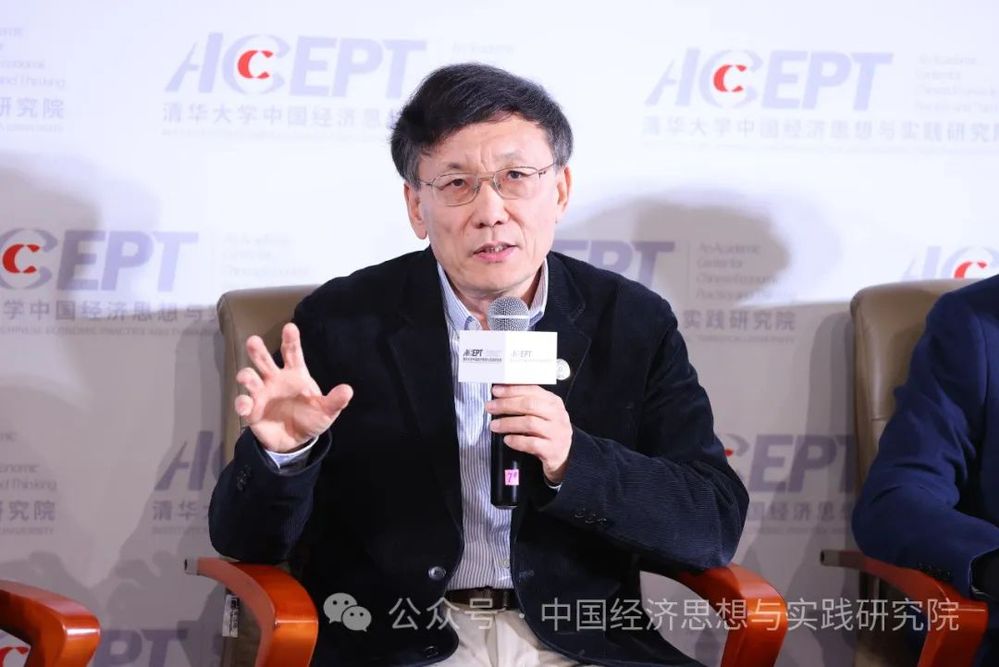David Qingzhong Pan: China's international exchanges to begin making headway, gap in China-U.S. science and technology narrows
The following is a summary of David Qingzhong Pan's comments during a roundtable discussion at the 46th Tsinghua University Forum of China and the World Economy held at Tsinghua University, Beijing, and broadcasted online on January 8, 2024. Pan is the Executive Director and Professor of Schwarzman College at Tsinghua University.
On January 8, 2024, the 46th Tsinghua University Forum of China and the World Economy, hosted by Tsinghua University's Academic Center for Chinese Economic Practice and Thinking (ACCEPT) in partnership with the university's School of Social Sciences and School of Economics and Management Alumni Center, was broadcasted online under the theme of "China's 2024 Economic Outlook." The Executive Director and Professor of Schwarzman College at Tsinghua University, David Qingzhong Pan, participated in a roundtable discussion at the forum alongside other distinguished guests where he commented on China and its position in the world economy.

On January 8, 2024, the 46th Tsinghua University Forum of China and the World Economy, held inside the Weilun Building's main lecture hall on campus at Tsinghua University's School of Economics and Management, was broadcasted online. The biannual event was hosted by Tsinghua University's Academic Center for Chinese Economic Practice and Thinking (ACCEPT) under the theme of "China's 2024 Economic Outlook." During the forum's proceedings, David Qingzhong Pan, Executive Director and Professor of Schwarzman College at Tsinghua University, participated in a roundtable discussion alongside other distinguished guests where he commented on China and its position in the world economy.
Pan revealed that according to aggregate data on the two-way movement of international travelers last year, China witnessed a total of around 123 million outbound trips in the first three quarters of 2023, despite only receiving 10.9 million inbound trips during the same period, thus underscoring the need to strengthen international exchanges.
When it comes to the economy and international trade, Pan observed that Chinese enterprises are currently accelerating their plans for overseas expansion and actively exploring opportunities abroad for investment and development cooperation: first, for those companies concentrating on Latin America as well as other countries and regions, there are enormous prospects to begin replacing traditional consumer goods with the latest more advanced products, such new energy and electric vehicles; second, countries in the Middle Eastern region, such as the United Arab Emirates, offer a favorable business environment as well as preferential policies for enterprises and a convenient immigration system for travelers, all of which make it much easier for private firms to take advantage of opportunities; and third, in Kenya and other countries in the African region, state-owned enterprises continue to engage in the construction of infrastructure while private firms moreover contribute to the development of corresponding industries, both of which very much complement one another.
On the issue of China-U.S. competition in science and technology, Pan commented that although there exists a gap between the two countries on balance, China has made the most of its own steadfast efforts and a sense of urgency to narrow the gap. At present, China's greatest advantage centers on the level of practical application, while it will take a certain period of time before the country can catch up at the level of foundational advancements in science and technology; meanwhile, the U.S. advantage lies in its favorable system for promoting scientific and technological development, including its triad of stable investment, talent and tax policies, along with other factors contributing to a friendly entrepreneurial environment. China has a huge pool of high-skilled workers, which means that as long as a similar system can be put into place, the country will be able to enjoy enormously bright prospects for its scientific and technological innovation moving forward.




